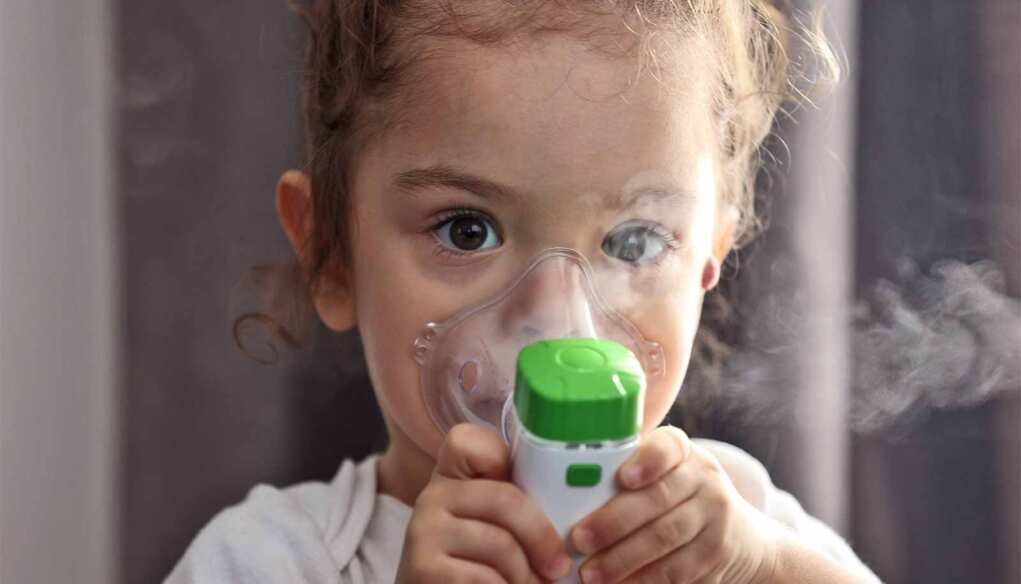
Children diagnosed with asthma are at significantly increased risk of developing anxiety, according to a new study.
The researchers analyzed 9,369 reports using data from the Longitudinal Study of Australian Children (LSAC), which has followed the development and well-being of 10,000 children since 2004.
The findings show 4-year-olds with asthma were more likely to develop anxiety between the ages of 6 and 15 years, compared to non-asthmatic children.
“We found there was an 87% increased risk overall for children with asthma,” says lead study author Diana Garcia Sanchez, a PhD candidate at the University of Queensland. “We also found girls with asthma experienced more anxiety than boys during adolescence.”
Around one in five Australian children live with the respiratory condition characterized by chronic inflammation of the airways, causing episodes of wheezing and shortness of breath.
The researchers don’t believe medication used to treat the disease is responsible for the increased risk of anxiety.
“The asthmatic children in the study who were unmedicated developed anxiety at a higher rate than those who were medicated for asthma,” Garcia Sanchez says. “The children who were not taking asthma medication were 9% more likely to develop anxiety than their medicated counterparts.”
“Other factors like additional burden to manage the disease or could be some linkage between immune system dysfunction/inflammation and mental health in some of the new models.
“Other factors could explain the link between asthma and anxiety, and health professionals and parents should regularly monitor the mental health of children and provide psychological support where appropriate.
“This may help identify those most at risk of developing anxiety earlier and improve management of the condition,” Garcia Sanchez says.
The study appears in the journal Pediatric Allergy and Immunology.
Source: University of Queensland
Important Notice: This article was also published at www.futurity.org by U. Queensland where all credits are due.
Disclaimer
The watching, interacting, and participation of any kind with anything on this page does not constitute or initiate a doctor-patient relationship with Dr. Farrah™. None of the statements here have been evaluated by the Food and Drug Administration (FDA). The products of Dr. Farrah™ are not intended to diagnose, treat, cure, or prevent any disease. The information being provided should only be considered for education and entertainment purposes only. If you feel that anything you see or hear may be of value to you on this page or on any other medium of any kind associated with, showing, or quoting anything relating to Dr. Farrah™ in any way at any time, you are encouraged to and agree to consult with a licensed healthcare professional in your area to discuss it. If you feel that you’re having a healthcare emergency, seek medical attention immediately. The views expressed here are simply either the views and opinions of Dr. Farrah™ or others appearing and are protected under the first amendment.
Dr. Farrah™ is a highly experienced Licensed Medical Doctor certified in evidence-based clinical nutrition, not some enthusiast, formulator, or medium promoting the wild and unrestrained use of nutrition products for health issues without clinical experience and scientific evidence of therapeutic benefit. Dr. Farrah™ has personally and keenly studied everything she recommends, and more importantly, she’s closely observed the reactions and results in a clinical setting countless times over the course of her career involving the treatment of over 150,000 patients.
Dr. Farrah™ promotes evidence-based natural approaches to health, which means integrating her individual scientific and clinical expertise with the best available external clinical evidence from systematic research. By individual clinical expertise, I refer to the proficiency and judgment that individual clinicians acquire through clinical experience and clinical practice.
Dr. Farrah™ does not make any representation or warranties with respect to the accuracy, applicability, fitness, or completeness of any multimedia content provided. Dr. Farrah™ does not warrant the performance, effectiveness, or applicability of any sites listed, linked, or referenced to, in, or by any multimedia content.
To be clear, the multimedia content is not intended to be a substitute for professional medical advice, diagnosis, or treatment. Always seek the advice of your physician or other qualified health providers with any questions you may have regarding a medical condition. Never disregard professional medical advice or delay in seeking it because of something you have read or seen in any website, video, image, or media of any kind. Dr. Farrah™ hereby disclaims any and all liability to any party for any direct, indirect, implied, punitive, special, incidental, or other consequential damages arising directly or indirectly from any use of the content, which is provided as is, and without warranties.








